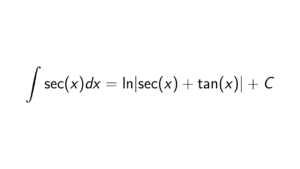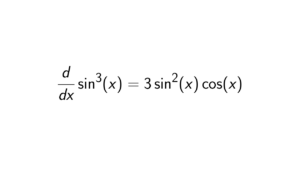Proof. Let f(x) = \cosh(x). We know that \cosh(x) is equal to:
\begin{align*}
\cosh(x) = \frac{e^x + e^{-x}}{2}.
\end{align*}\begin{align*}
f'(x) &= \lim_{h \rightarrow 0} \frac{f(x+h) - f(x)}{h} \\
&= \lim_{h \rightarrow 0} \frac{\cosh(x + h) - \cosh(x)}{h} \\
&= \lim_{h \rightarrow 0} \frac{\frac{e^{x + h} + e^{-x-h}}{2} - \frac{e^x + e^{-x}}{2}}{h} \\
&= \lim_{h \rightarrow 0} \frac{e^{x + h} + e^{-x-h} - e^x - e^{-x}}{2h} \\
&= \lim_{h \rightarrow 0} \frac{e^{x}(e^{h} - 1) + e^{-x}(e^{-h} - 1)}{2h} \\
&= \frac{1}{2}e^x\lim_{h \rightarrow 0} \frac{e^{h} - 1}{h} + \frac{1}{2}e^{-x}\lim_{h \rightarrow 0} \frac{e^{-h} - 1}{h}
\end{align*}\begin{align*}
\frac{1}{2}e^x\lim_{h \rightarrow 0} \frac{e^{h} - 1}{h} + \frac{1}{2}e^{-x}\lim_{h \rightarrow 0} \frac{e^{-h} - 1}{h} = \frac{1}{2}(e^x - e^{-x}) = \sinh(x).
\end{align*}

